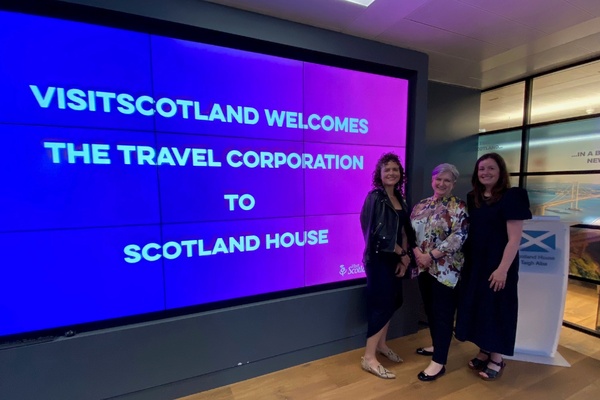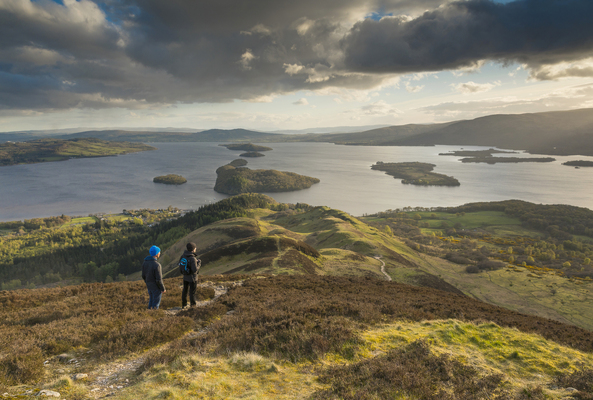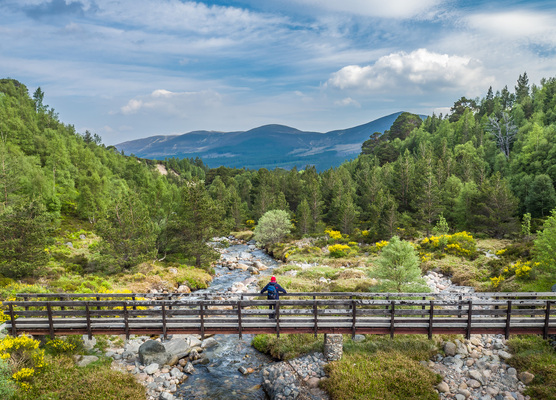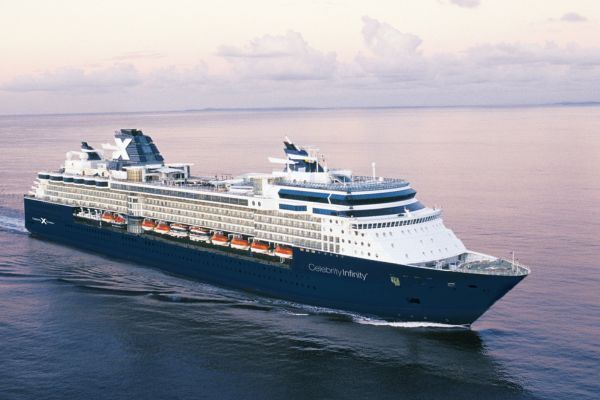TTC and VisitScotland team up to promote responsible tourism as 'new normal'
The Travel Corporation (TTC) and national tourism organisation VisitScotland have entered into a partnership to accelerate decarbonisation of tourism in Scotland by delivering touring itineraries focusing on positive impacts for the environment and local communities.
The partnership, the first that has seen VisitScotland partner with a global tour operator, will also be pooling shared insights and resources to scale up efforts to support tourism businesses in Scotland with the development of climate action plans.
Speaking to TTG, TTC chief sustainability officer Shannon Guihan pointed to the partnership being based around the pursuit of responsible tourism, rather than it being “a message”. “I think that shift in priorities is what makes it groundbreaking and a new way for destinations and the sector to work with one another,” Guihan said.
Lyn Donnelly, senior responsible tourism manager at VisitScotland added: “Having TTC support what we do with tourism businesses is unique. I often speak to businesses about climate action plans and impact. Understandably it may not be a priority because there’s so many others for businesses to consider at the moment.
“By marketing and working with tour operators and intermediaries, we can help create responsible, low carbon product in Scotland and then take it to market with TTC, and really influence visitor choices when planning, but also while they’re in destination.”
The partnership will work to create new itineraries across TTC’s brands, which includes Insight Vacations, Trafalgar Tours, Contiki and Brendan Vacations, to grow its portfolio of the operator’s Make Travel Matter experiences, established in 2020.

Guihan said: “What it does is enable us to identify interesting immersive experiences that are solely supporting the environment or their community. That’s purposeful and enables us to talk about it in a way the guest understands. That’s been really successful for us and we’re looking forward to developing more.”
Both Guihan and Donnelly conceded that consumer priorities when choosing travel are not necessarily centred around responsible tourism, with price and seasonality often being higher up the list.
Donnelly was clear the phrase “responsible tourism” is avoided in tourism messaging to visitors.
“It’s very much about landscapes and scenery, because visitors connect with that, and that’s the storytelling of Scotland’s history,” she said. “It leads to responsible tourism because of the work we do behind the scenes, but the term responsible tourism is not consumer friendly.”
But Guihan pointed to small shifts in traveller purchasing patterns: “We’re starting to see movements to more temperate climates, place where there are fewer people. That in my opinion is the guest seeking out what they’re not sure they’re seeking out.
“They’re not looking for crowds or overheated destinations. And we need to understand that for what it is, which is the guest understanding the movement of the world, the climate and people, but perhaps for different motivators.”
The three-year partnership will be supported by The Travel Foundation, which will work with TTC and VisitScotland to share learnings, challenges and successes from the project globally to businesses, destinations and tour operators.
The Travel Foundation has confirmed it is looking at supporting similar collaborations between businesses and destinations or regions across Europe and North America in particular, to look at finding ways to scale and accelerate decarbonisation in tourism.
TTC and VisitScotland will pool intelligence and data resources from TTC’s trip carbon calculator and VisitScotland’s destination expertise to help decarbonise TTC itineraries in Scotland, with a focus on transportation, agriculture and “circular” economy initiatives.
A series of webinars, free resources and toolkits will support suppliers and help create climate action plans.
Donnelly said VisitScotland looks to promote Scotland as a year-round destination. “We work really closely with our DMOs to discuss sensitivities and when they have capacity. It’s that seasonal and regional spread we try and get across all our activity.”
She stressed responsible tourism is the new ‘business as usual’ for VisitScotland. “It’s a force for good and there’s four elements to it. There’s supporting the sector transition to the low carbon economy, making sure it’s inclusive and accessible, driving meaningful tourism in the right areas and protecting our natural and cultural heritage.”

Donnelly added: “That’s why people visit Scotland, the scenery and the landscapes top the list every time. It’s also the people and the warmth, but it’s our hills and lochs that makes Scotland special.”
Tourism contributed £10.6 billion to Scotland’s economy in 2022 across both UK and international visitors, with 111 million visits made over the year, the majority from UK travellers. Both Donnelly and Guihan insisted the partnership was not about “knowing all the answers”.
Guihan said: “The bigger infrastructure challenges are the long game. We need building blocks to get up to these issues, even though we know addressing the energy mix along with the transportation opportunities are where we’ll get the greatest wins, that is a big thing to say.”
“There’s huge challenges ahead of us and working together means more impact than doing it individually. It’s not us telling industry what to do, it’s very much about opportunities and how we can help them invest for the future,” Donnelly added.
Sign up for weekday travel news and analysis straight to your inbox

Sarah Dennis
Supplier Directory
Find contacts for 260+ travel suppliers. Type name, company or destination.












